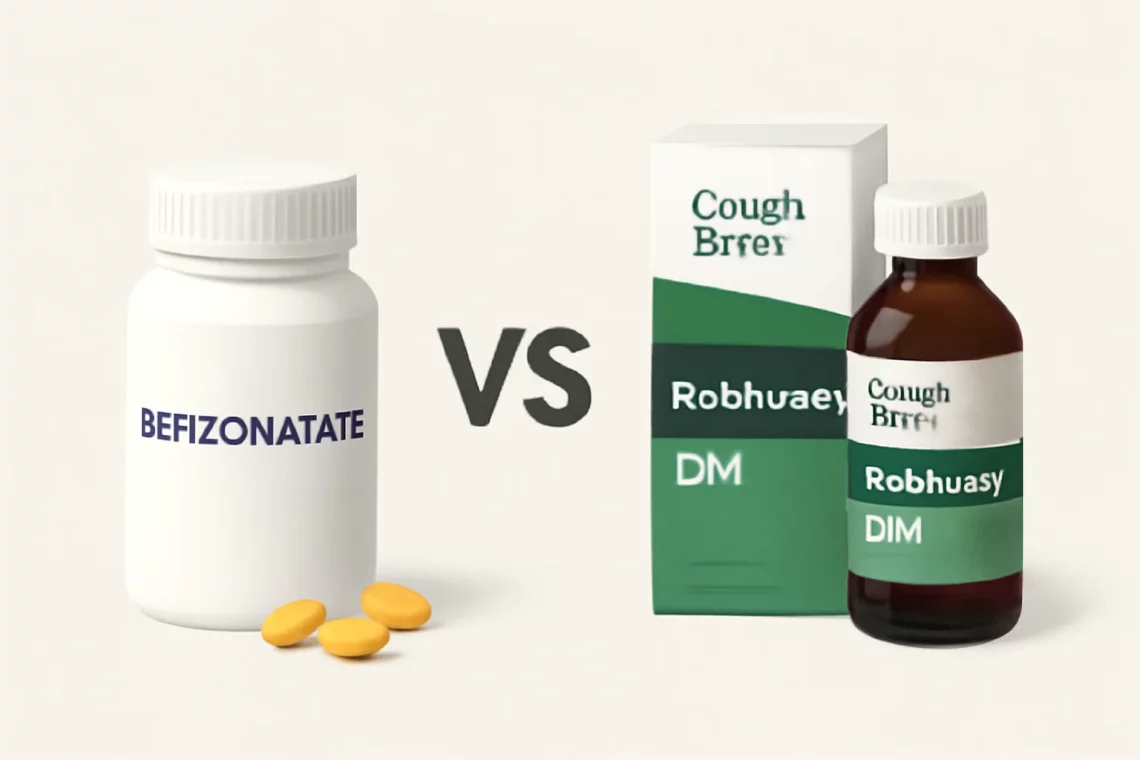
Benzonatate vs Robitussin DM: Which Cough Relief is Better?
Benzonatate and Robitussin DM are two popular medications used to alleviate cough symptoms, but they work in different ways and have distinct active ingredients. Understanding their mechanisms, uses, and potential side effects can help individuals make informed choices about which product may be best for their needs. Coughing is a common symptom that can arise from various conditions, including colds, flu, allergies, and respiratory infections. While it serves an essential purpose by clearing mucus and irritants from the airways, a persistent cough can be uncomfortable and disruptive to daily life.
The choice between Benzonatate and Robitussin DM often depends on the nature of the cough, any underlying health conditions, and personal preferences regarding medication forms and dosages. As with any medication, it is crucial for users to be aware of potential side effects and interactions with other drugs. This article will explore the differences and similarities between Benzonatate and Robitussin DM, providing insights into their uses, how they function, and when one may be preferred over the other.
Understanding Benzonatate: Mechanism and Usage
Benzonatate is a prescription medication specifically designed to suppress coughs. It is classified as a non-narcotic antitussive, which means it helps reduce the urge to cough without the sedative effects commonly associated with narcotic cough suppressants. The active ingredient in Benzonatate works by numbing the throat and lungs, which diminishes the cough reflex. This mechanism is particularly useful for individuals dealing with a dry, persistent cough that does not produce mucus.
Patients typically receive Benzonatate in capsule form, which must be swallowed whole. It is essential to note that the capsules should not be chewed, as doing so can lead to a numbing sensation in the mouth and throat, potentially causing choking or other adverse effects. The recommended dosage for adults usually involves taking 100 mg three times a day as needed for cough relief.
Benzonatate is often prescribed for patients experiencing cough due to upper respiratory infections, bronchitis, or other conditions that irritate the throat. Because it works directly on the cough reflex, it does not address the underlying cause of the cough; therefore, it is usually recommended for short-term use.
Like any medication, Benzonatate comes with potential side effects. Commonly reported side effects include drowsiness, dizziness, and gastrointestinal discomfort. In rare cases, individuals may experience allergic reactions, which could manifest as rash, itching, or difficulty breathing. Patients with a history of allergic reactions to similar medications should inform their healthcare provider before starting Benzonatate.
Overall, Benzonatate serves as an effective option for those seeking relief from annoying coughs, particularly when the cough is dry and persistent. Its unique mechanism of action differentiates it from other over-the-counter cough remedies, making it a valuable tool in managing cough symptoms.
Robitussin DM: Ingredients and Functionality
Robitussin DM is a well-known over-the-counter medication that combines two active ingredients: dextromethorphan and guaifenesin. Dextromethorphan is an antitussive that helps suppress the cough reflex, while guaifenesin is an expectorant that aids in loosening mucus in the airways, making it easier to expel. This combination makes Robitussin DM particularly useful for individuals experiencing a cough associated with mucus production, such as in cases of bronchitis, pneumonia, or other respiratory infections.
Robitussin DM is available in various forms, including liquid syrups and capsules, making it easy for patients to choose a format that suits their preferences. The typical dosage for adults involves taking 10 ml to 20 ml of the liquid formulation every four to six hours, not exceeding the maximum daily limit. The combination of dextromethorphan and guaifenesin provides dual action, addressing both the cough reflex and the underlying mucus congestion.
One of the advantages of Robitussin DM is its availability over-the-counter, allowing individuals to purchase it without a prescription. This accessibility is beneficial for those who wish to manage mild to moderate cough symptoms without seeking a healthcare provider’s assistance.
However, like all medications, Robitussin DM is not without its potential side effects. Some users may experience dizziness, drowsiness, or gastrointestinal disturbances such as nausea or vomiting. Additionally, individuals with certain health conditions, such as chronic obstructive pulmonary disease (COPD) or asthma, should consult their healthcare provider before using Robitussin DM, as the expectorant may not be suitable for everyone.
In summary, Robitussin DM offers a comprehensive approach to cough relief by combining an antitussive and an expectorant. Its dual action makes it a popular choice among those seeking to alleviate cough symptoms while also addressing mucus buildup in the respiratory tract.
Comparing Benzonatate and Robitussin DM: Key Differences
When comparing Benzonatate and Robitussin DM, several key differences emerge that can influence a patient’s choice of medication. One significant distinction lies in their formulations and mechanisms of action. Benzonatate acts primarily as a cough suppressant, focusing on inhibiting the cough reflex in the throat and lungs. In contrast, Robitussin DM combines the cough-suppressing effects of dextromethorphan with the mucus-loosening properties of guaifenesin, making it a more multifaceted option for cough relief.
Another notable difference is the method of administration. Benzonatate is available only by prescription and is typically provided in capsule form, requiring careful administration to avoid adverse effects. On the other hand, Robitussin DM is readily available over-the-counter in various formats, allowing users to choose the option that best suits their needs and preferences.
The recommended uses for each medication also differ. Benzonatate is most effective for dry coughs, where there is little to no mucus production. In contrast, Robitussin DM is better suited for individuals dealing with coughs accompanied by mucus, as its expectorant properties help to alleviate congestion.
Patients should also consider potential side effects when choosing between these two medications. Benzonatate may cause drowsiness and gastrointestinal discomfort, while Robitussin DM can lead to dizziness and nausea. Due to individual sensitivities, it is essential for patients to be aware of how each medication may affect them personally.
Ultimately, the choice between Benzonatate and Robitussin DM will depend on the nature of the cough, personal preferences regarding medication forms, and any underlying health conditions. Consulting a healthcare provider can help individuals make informed decisions tailored to their specific situations.
When to Consult a Healthcare Professional
While both Benzonatate and Robitussin DM can effectively alleviate cough symptoms, there are instances when consulting a healthcare professional is crucial. If a cough persists for more than a few weeks, worsens over time, or is accompanied by other concerning symptoms, such as fever, shortness of breath, or chest pain, it is essential to seek medical advice. These signs may indicate a more serious underlying condition, such as pneumonia, bronchitis, or other respiratory diseases that require professional evaluation.
Additionally, individuals with pre-existing health conditions, such as asthma, COPD, or heart disease, should discuss their symptoms and treatment options with a healthcare provider. Certain medications may interact with existing treatments or exacerbate underlying conditions, making professional guidance invaluable.
Furthermore, patients who are pregnant, nursing, or taking multiple medications should also consult their healthcare provider before starting any new medication. This ensures that the chosen treatment is safe and appropriate for their unique circumstances.
In conclusion, while Benzonatate and Robitussin DM are both effective options for managing cough symptoms, it is vital for individuals to consider their specific needs, potential side effects, and any underlying health conditions. By consulting with a healthcare professional, patients can make informed decisions regarding their cough treatment.
**Disclaimer: This article is not a substitute for professional medical advice. Always consult a healthcare provider for medical concerns or questions regarding medications.**




